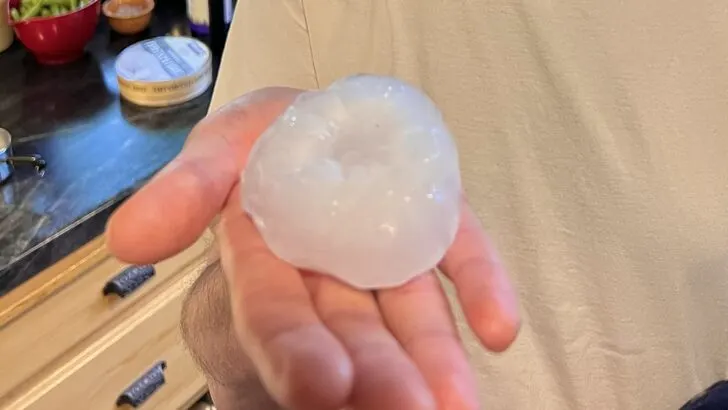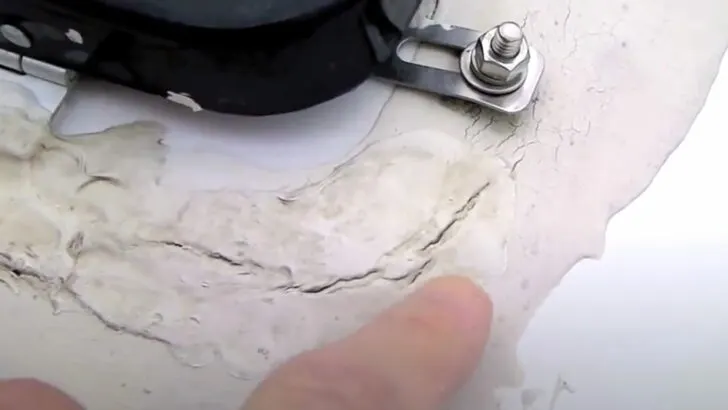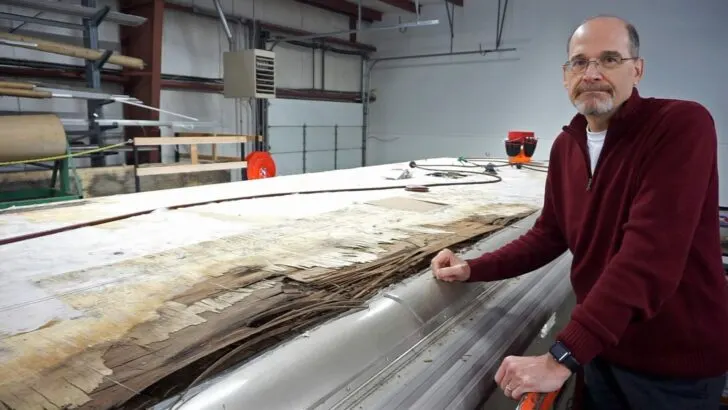Does RV insurance cover mold? That’s an important question and the answer may surprise you. Mold is both a health hazard and a well-known threat to RVs. But there are ways to prevent the development of mold in your rig.
In today’s post, we’ll cover the answer to the question “Does insurance cover mold in an RV?” We’ll also tell you how to minimize the likelihood that you’ll need to worry about mold becoming a health hazard and causing damage to your RV.
About RV Insurance
In our post “What Does RV Insurance Cover” we discussed the difference between various types of coverage. In summary…
Liability
With RV or car insurance, liability coverage pays for the property damage and losses (including medical payments) others sustain as the result of an accident that is your responsibility. Liability insurance protects you from legal liability should property damage or physical injuries occur as the result of an accident that is your fault.
So, liability insurance covers losses and costs on the part of others. It does not pay costs for losses to you, your family, or damage to your own vehicle or property.
Collision
Collision insurance covers damage to your RV if you collide with another vehicle or an object (guardrail, post, building, fence, etc.), regardless of whose fault the accident is. Regarding “fault” you should keep in mind that some states have “no fault” policies. Review your policy to confirm, how your coverage works.
Comprehensive
Comprehensive insurance covers damage to your RV that is not covered by collision coverage. Examples would include fire, vandalism, falling objects, theft, hail, flood, or glass breakage not caused by a collision.

This size hailstone can do some serious damage, which may be covered by a standard auto or RV insurance plan as part of the comprehensive coverage.
Does RV Insurance Cover Mold?
Comprehensive coverage is where you might think you’d be covered by your RV insurance (or auto insurance) for anytype of damage, including water damage that leads to mold development. But that’s not likely. Whether or not mold damage is covered depends on your RV insurance policy’s specific terms and conditions.
It’s important to check with your insurance agent or policy so you’ll know exactly what’s covered and what’s not. That way you’ll know whether you need any type of additional coverage.
In most cases, standard RV insurance policies do not explicitly cover mold damage. This means that if mold growth occurs in your RV due to water leaks, humidity, or poor ventilation, you may not be able to file a claim for mold-related damage.
Insurance companies often consider mold preventable, and they expect RV owners to take proactive measures to prevent it. Some insurance companies may offer optional endorsements or riders that can be added to your policy to provide coverage for mold damage, though these come at an extra cost.
Remember, too, that if your policy, or a rider on your policy, says that your RV insurance covers water damage, that doesn’t automatically mean that it covers mold that results from water leaks and accumulated moisture in an RV.
As we noted in our posts on full-time RV insurance and motorhome insurance costs, the term “water damage” may refer to burst pipes in your plumbing system. It’s far less likely to refer to water leaks, accumulated moisture, and poor maintenance that eventually lead to the development of mold.
Since (barring language specifically saying otherwise), mold isn’t likely covered by your RV policy, the best insurance against mold is through preventative maintenance.
How to Prevent Mold in Your RV
Given the fact that RV insurance most likely does not cover mold damage by default, it’s crucial to take proactive steps to prevent mold growth in your rig. Here are some tips to help you keep your RV mold-free.
Regular Inspection
Barring a plumbing leak, water penetration from outside the RV is the most common cause of mold-producing moisture. Preventing RV roof leaks is key. The best way to do this is to regularly inspect your RV roof sealant and promptly repair any areas that are questionable beforea leak can begin.

Inspecting sealants on the roof is the best way to ensure that you don’t develop leaks in your RV.
Inspect your RV for any signs of cracks, tears, water leaks, roof damage, or damage to sealants around gear installed on your roof. This includes antennas, vent fans, skylights, solar panel mounts, or any other place where anything is screwed into, or transits through, the roof.
immediately and thoroughly address any issues you find.

Maintaining your RV roof seals is important to prevent leaks, mold, and serious damage to your rig.
No products found.
- 26:1 THRUST RATIO: 950 pounds of force easily extrudes the thickest of materials
- COMFORTABLE GRIP: Ergonomic rubber trigger and push release
Proper Ventilation
Proper ventilation in your RV, particularly in the bathroom and kitchen, is important to prevent moisture accumulation that can lead to mold and mildew. Use your exhaust fans regularly and open windows as needed.
- 4-Speed Fan Motor with 12" Fan Blade moves over 900 CFM of Air, Exhaust Air Only
- Built-In Rain Shield
Moisture Control
Use dehumidifiers or moisture-absorbing products to control humidity levels inside the RV, especially in damp climates. You can find many good options in our post on the best RV dehumidifiers.
- DampRid Hi-Capacity Moisture Absorber Bucket attracts and traps excess moisture, eliminating musty odors from damp areas.
- The hi-capacity design features a unique Moisture Lock spill resistor technology with a sealed safety cover for a mess free solution.
Repair Leaks Promptly
Repair any leaks or water damage promptly to prevent mold from developing. Be sure to regularly check the seals around windows and doors. Fix any issues there as well as any damage to your roof as promptly as possible.
Use Care When Storing Your RV
When storing your RV for an extended period, choose a dry and well-ventilated location. Consider using moisture-absorbing products inside the RV during storage.
- PROFESSIONAL AND EFFICIENT DEHUMIDIFICATION- With removal capacity of up to 32.7 Pints (under 95°F,90%RH condition) of moisture per day. (Please...
- CONVENIENT AND SIMPLE TO USE. Home appliances never need to be complicated. It features a light-touch intelligent control panel, which let you see the...
If you’re concerned about mold despite good maintenance habits, you can explore your insurance options by contacting your RV insurance agent and inquiring about the possibility of adding mold coverage through an endorsement or rider to your policy.
As always, carefully review your policy and talk with your agent for a clear understanding of the specific terms and conditions of your RV insurance coverage.
Free RVing Tips, Tricks, Reviews & Giveaways
As 20-year full-timers, we share everything we’ve learned about RVing over the years. Join our online community to receive a wealth of great RVing knowledge delivered daily to your inbox.
Whether you’re a new RVer or a seasoned full-timer, you’ll love the wide range of RVing topics we cover. Don’t miss a single article or any of our famous Giveaways. Subscribe to our newsletter today!





